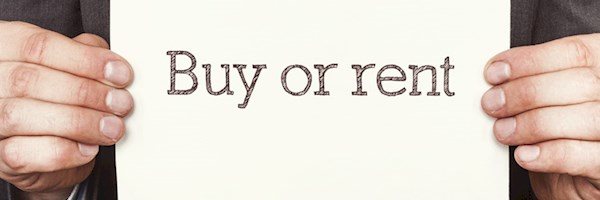Transiting from renting a property to becoming a homeowner is a big decision and all aspects of this financial and long term commitment should be weighed-up carefully, including whether buying or renting will put you in a better financial position. The following are a few guidelines which outline the fundamental differences between renting and buying.
Finances when buying:
How you are faring financially is possibly the most important factor when deciding to buy a home for the first time. Buying a home attracts upfront costs which need to be budgeted for.
For example, there is the cost of the bond which needs to be registered with the Deeds Office. While transfer duties may not apply if the house costs less than R750 000, transfer costs (the fees paid to the conveyancing agency for their services) still have to be paid.
In addition to your monthly bond repayments, you will also have to budget for rates and taxes, levies (if your home is in a complex), water and electricity as well as household insurance for the goods as well as the structure. Then there’s the cost of maintenance. If you are buying you need to be able to set aside money every month for maintenance such as an unexpected leak or painting.
(Use our affordability calculator to work out what you can afford)
Finances when renting:
When renting a property, you will need to provide a deposit, which is normally a month’s rent, in addition to the rent for your first month. This deposit is used to cover any damage when you leave the unit or house. Once the deposit is paid, you will only be responsible for paying your rent and utility bills and electricity and water on a monthly basis.
Although tenants typically aren’t expected to pay building insurance, the majority of tenants will be expected to have their own household insurance in place. This is to cover your own personal goods that are in the rented house in the event of a burglary or a fire.
So what’s best?
Simphiwe Madikizela, head of projects at FNB Housing Finance says that deciding whether to rent or buy is never a straightforward decision.
Says Madikizela: “If you are able to afford the bond and the additional monthly payments as well as the money for added costs then you are probably in a good position to buy. Although the bond repayments may seem steep in the beginning, in most cases, after a few years your income position will be stronger and you should be able afford the repayments fairly easily as well as have an increase in capital value of the actual home.
“There are a few factors that work in favour of renting. One is your long term position. Do you move around a lot? Are you planning on travelling or taking a break from your employment at any stage? Buying is a long term commitment, and it isn’t an easy process to sell a house, which may actually put you on a financial back foot if you have to sell in a relatively short period.”
Clearly there are advantages to both renting and owning your own house. The upshot is that it’s important to make sure you take all the different aspects into consideration when doing your sums to make the best possible decision.
